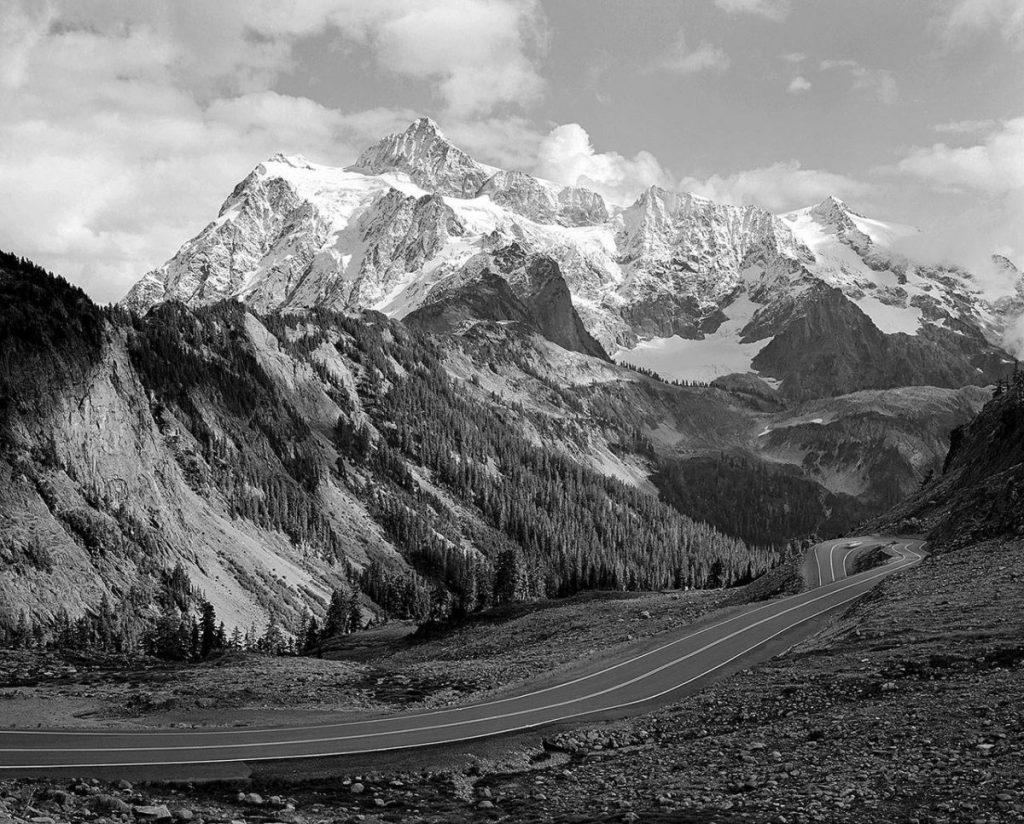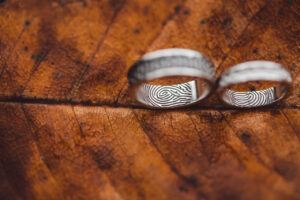‘Endless Love’ exhibit reflects photographer’s lifelong passion

Norman Riley has traveled throughout Europe, photographing Prague’s winding, cobbled streets, the stately columns casting afternoon shadows at Venice’s Economic and Financial Ministry, and the half timbered Bavarian homes in the German town of Segnitz.
The photograph whose size dominates his retrospective exhibit at Everett Community College’s Russell Day Gallery is closer to home, the snowy 9,100-foot peak of Mount Shuksan in North Cascade National Park.
At 24 by 30 inches, “it certainly catches your attention,” Riley said.
Its sharp visual clarity, obtained from an 8-by-10-inch negative, is from the later “f/64”part of his photographic journey. F/64 refers to a very small opening on the camera’s lens, producing unusually sharp focus.
Edward Weston, Ansel Adams and Imogen Cunningham were among the photographers who championed this type of photography in the 1930s.
That style evolved from the 35mm photos Riley began taking at age 26 when “all I wanted to do is take pictures of friends and places I visited.”
He is totally self-taught, never taking a photography class in college. His degree is in environmental toxicology.
Riley said he used his work as a toxicologist so he could get money to buy film.
He first adopted the pictorial style of photography, photos that look more like paintings or drawings than typical photographs.
“I think the pictorial images, the early ones, are perhaps the most profoundly important to me,” he said. “They represent a happy time in my life.”
It was his desire to move to larger photographic prints that led him to abandon his 35mm camera. “I knew the pathway to bigger prints was to begin with a bigger piece of film,” he said.
That means using cameras that have 4-by-5-inch and 8-by-10-inch negatives. His 8-by-10 camera is a Deardorff — the same type of camera used by Ansel Adams.
His old-fashioned appearing cameras drew the attention of visitors while he was an Artist-in-Residence at Glacier National Park in 2015.
The large camera with its bellows, secured to a tripod, requires the photographer’s head to be covered with a cloth to clearly see the camera’s imagine, which is displayed upside down.
People acquainted with the point-and-shoot simplicity of their cellphone cameras approached him nearly every day asking: “How old is that camera?” Despite its vintage appearance, it was made in Chicago in 1978.
Living in a furnished national park cabin, his residency was a life-changing experience. “There was nothing to do for a month but think about photography and make photographs,” he said. “You learn a lot about yourself and your art.”
He still finds traditional photography superior to digital, staying with it for the love of craft. That includes mixing and compounding the chemicals needed to produce the images in his darkroom.
Riley’s works are included in the permanent collections of the San Luis Obispo Museum of Art in San Luis Obispo, California; the Museum of Northwest Art in La Conner; the Portland Art Museum; the Lyman Museum in Hilo, Hawaii; the Department of Special Collections at the University of California-Davis; and the Fernie Museum in Fernie, British Columbia.
Now retired and living in Bellingham, many of his current photographs are taken in Washington, from the patterns in the furrows of Skagit Valley’s agricultural fields near Bow-Edison, to Eastern Washington’s gorge.
“Anything that stops you in your tracks to the point you look at it a second, third or fourth time — that’s a good image,” Riley said.
Perhaps it should come as no surprise that the name of his exhibit, with its 45 black-and-white images, is entitled “Endless Love.”
Riley said he chose it “to refer to the world reflected in my photographs — to the beauty I see in the things I shoot over and over again.”
Sharon Salyer: 425-339-3486 or salyer@heraldnet.com.
If you go
“Endless Love,” Norman Riley’s photo exhibit at Everett Community College’s Russell Day Gallery will be on display through May 4. The opening reception is from 12:30 to 2:30 p.m. April 5. The gallery, in the Parks Student Union Building, 2000 Tower St. in Everett is open 10 a.m. to 5 p.m Monday through Thursday and 10 a.m. to 3 p.m. Friday.









